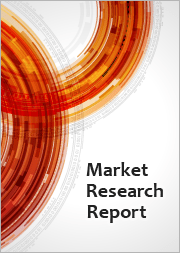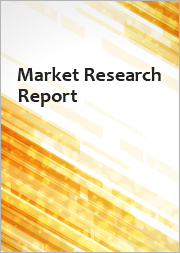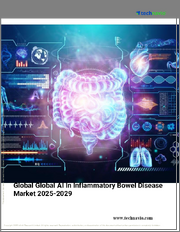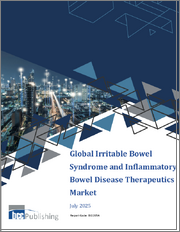
|
시장보고서
상품코드
1654165
대변 칼프로텍틴 검사 시장 규모, 점유율, 동향 분석 보고서 : 분석별, 용도별, 최종 용도별, 지역별, 부문별 예측(2025-2030년)Fecal Calprotectin Test Market Size, Share & Trends Analysis Report By Assay (Enzyme-linked Immunosorbent, Enzyme Fluroimmunoassay, Quantitative Immunochromatography), By Application, By End-use, By Region, And Segment Forecasts, 2025 - 2030 |
||||||
대변 칼 프로텍틴 검사 시장의 성장과 동향
Grand View Research, Inc.의 최신 보고서에 따르면, 세계의 대변 칼 프로텍틴 검사 시장 규모는 2030년까지 95억 5,000만 달러에 달할 것으로 예상되며 2025년부터 2030년까지 11.2%의 CAGR을 기록할 것으로 전망됩니다.
세계에서 가장 흔한 암 중 하나가 된 대장암의 발병률 증가가 시장 성장의 주요 요인입니다. 의료 시스템이 환자 예후를 개선하고 의료 비용을 절감하기 위해 조기 발견을 우선시함에 따라 대변 칼프로텍틴 검사는 대장암의 조기 지표가 될 수 있는 위장관의 염증을 식별하는 필수 도구로 부상했습니다. 대변 샘플에서 칼프로텍틴의 농도를 측정하는 이 검사는 의료 전문가에게 대장내시경과 같은 추가 진단 절차가 필요한지 여부를 판단하는 데 유용한 정보를 제공합니다. 이 비침습적 접근 방식은 기존 진단 방법에 비해 상당한 이점을 제공하므로 환자와 의료진 모두에게 선호되는 옵션입니다.
대변 칼 프로텍틴 검사 시장의 성장에 기여하는 또 다른 중요한 요인은 크론병과 궤양성 대장염을 포함한 염증성 장 질환의 유병률이 증가하고 있다는 점입니다. 소화관에 염증을 유발하는 이러한 만성 질환은 지속적인 모니터링과 관리가 필요합니다. 대변 칼프로텍틴 검사는 IBD 환자의 질병 활성도를 평가하고 치료 반응을 모니터링하는 데 중요한 역할을 합니다. 특히 선진국을 중심으로 전 세계적으로 IBD 발병률이 증가함에 따라 대변 칼프로텍틴 검사와 같은 신뢰할 수 있는 비침습적 진단 도구에 대한 수요는 증가할 것으로 예상됩니다. 침습적 시술 없이 질병의 진행과 재발을 모니터링할 수 있다는 점이 의료진과 환자들 사이에서 이 검사의 채택을 촉진하는 주요 이점입니다.
예방 의료의 중요성에 대한 인식이 높아지는 것도 시장을 이끄는 중요한 요인입니다. 정부, 의료 기관 및 옹호 단체는 대장암 및 기타 위장 질환의 조기 발견에 점점 더 집중하고 있습니다. 많은 국가에서 대장암 국가 검진 프로그램이 시행되고 있으며, 대변 칼프로텍틴 검사가 이러한 프로그램의 일부로 포함되는 경우가 많습니다. 더 많은 사람들이 정기 검진을 받음에 따라 대변 칼프로텍틴 검사에 대한 수요는 증가할 것으로 예상됩니다. 또한 일반 대중이 대장암 및 IBD와 관련된 위험성을 더 많이 인식함에 따라 이러한 질환을 조기에 발견할 수 있는 진단 검사에 대한 수요가 증가하여 시장 성장을 더욱 촉진하고 있습니다.
대변 칼프로텍틴 검사의 기술적 발전도 시장 확대에 기여하고 있습니다. 보다 정확하고 빠르며 사용자 친화적인 검사 기기의 개발로 대변 칼프로텍틴 검사의 접근성과 효율성이 높아졌습니다. 자동 분석기 및 가정용 검사 키트와 같은 혁신 덕분에 의료진과 환자 모두 이 진단 도구를 더 쉽게 사용할 수 있게 되었습니다. 특히 자동화된 시스템은 검사 과정을 간소화하여 임상 실험실의 처리량을 늘리고 검사 효율성을 향상시켰습니다. 한편, 가정용 검사 키트는 환자가 집에서 편안하게 위장 건강을 모니터링할 수 있는 편리한 방법을 제공합니다. 이러한 발전은 특히 의료 접근성이 제한적이거나 환자가 독립적으로 건강을 관리하는 것을 선호하는 지역에서 대변 칼프로텍틴 검사의 채택을 촉진하는 데 도움이 되고 있습니다.
시장의 주요 진출기업은 검사 과정을 간소화하고 임상 환경에서 처리량을 개선하는 사용자 친화적이고 자동화된 시스템 개발과 같은 기술 발전에 집중하고 있습니다. 또한 환자가 원격으로 자신의 상태를 모니터링할 수 있는 자가 진단 키트를 도입하는 BIOHIT Healthcare와 같은 회사가 등장하면서 가정 기반 검사 솔루션에 대한 수요가 증가하고 있습니다. 또한 기업들이 제품 포트폴리오를 확장하고 시장 입지를 강화하기 위해 파트너십, 협업, 인수가 증가하고 있습니다. 경쟁 전략은 검사 민감도 개선, 비용 절감, 환자 편의성 향상에 대한 필요성에 크게 영향을 받으며, 기업들은 점점 더 혼잡해지는 시장에서 제품을 차별화하기 위해 지속적으로 노력하고 있습니다.
대변 칼 프로텍틴 검사 시장 보고서 하이라이트
- 분석별로 2024년 효소결합 면역흡착 분석법이 66.4%로 가장 큰 매출 점유율을 차지했습니다. 우세의 주된 이유 중 하나는 염증성 장 질환(IBD) 및 대장암과 같은 위장 장애와 관련된 염증을 정확하게 검출할 수 있는 높은 민감도와 특이도입니다.
- 용도별로는 염증성 장 질환이 시장을 지배하고 2024년에 66.0%의 가장 큰 점유율을 차지했습니다.
- 최종 용도별로는 병원 및 클리닉 부문은 2024년 54.7%의 가장 큰 시장 점유율로 최종 용도 부문을 지배했습니다. 이 부문의 우세는 병원에서 검사하는 환자 수가 많기 때문입니다.
- 북미가 세계의 시장을 독점한 이유는 다수의 주요 시장 진출 기업이 존재하기 때문입니다. 북미는 IBS 및 기타 위 질환의 유병률이 높습니다. 또한, 잘 발달된 의료 인프라가 지역 시장 성장을 촉진합니다.
- 아시아태평양은 신흥 시장의 의료 시설 개발로 인해 2025년부터 2030년까지 예측 기간 동안 12.7%의 연평균 성장률로 가장 빠른 성장을 보일 것으로 예상됩니다. 또한, 예방적 정기 검사에 대한 관심이 높아지면서 시장 성장도 뒷받침되고 있습니다.
목차
제1장 조사 방법과 범위
제2장 주요 요약
제3장 대변 칼프로텍틴 검사 시장의 변수, 동향, 범위
- 시장 계통의 전망
- 상위 시장 전망
- 관련및 하위 시장 전망
- 시장 역학
- 시장 성장 촉진요인 분석
- 시장 성장 억제요인 분석
- 대변 칼 프로텍틴 검사 시장 분석 도구
- 산업 분석 - Porter's Five Forces 분석
- PESTEL 분석
제4장 대변 칼프로텍틴 검사 시장 : 분석별, 추정 및 동향 분석
- 분석별 시장 점유율(2024년, 2030년)
- 부문 대시보드
- 세계의 분석별 대변 칼프로텍틴 검사 시장 전망
- 시장 규모와 예측과 동향 분석(2018-2030년)
- 효소 면역 측정법
- 효소 형광 면역 측정법
- 정량 면역 크로마토그래피
제5장 대변 칼프로텍틴 검사 시장 : 용도별, 추정 및 동향 분석
- 용도별 시장 점유율(2024년, 2030년)
- 부문 대시보드
- 용도별 세계의 대변 칼프로텍틴 검사 시장 전망
- 시장 규모와 예측과 동향 분석(2018-2030년)
- 염증성 장질환
- 대장암
- 기타
제6장 대변 칼프로텍틴 검사 시장 : 최종 용도별, 추정 및 동향 분석
- 최종 용도별 시장 점유율(2024년, 2030년)
- 부문 대시보드
- 최종 용도별 세계의 대변 칼프로텍틴 검사 시장 전망
- 시장 규모와 예측과 동향 분석(2018-2030년)
- 병원 및 클리닉
- 진단 실험실
- 학술연구기관
제7장 대변 칼프로텍틴 검사 시장 : 지역별, 추정 및 동향 분석
- 지역별 시장 점유율 분석(2024년, 2030년)
- 지역별 시장 대시보드
- 지역별 세계의 시장 현황
- 시장 규모와 예측 동향 분석(2018-2030년)
- 북미
- 미국
- 캐나다
- 멕시코
- 유럽
- 영국
- 독일
- 프랑스
- 이탈리아
- 스페인
- 노르웨이
- 스웨덴
- 덴마크
- 아시아태평양
- 일본
- 중국
- 인도
- 호주
- 한국
- 태국
- 라틴아메리카
- 브라질
- 아르헨티나
- 중동 및 아프리카
- 남아프리카
- 사우디아라비아
- 아랍에미리트(UAE)
- 쿠웨이트
제8장 경쟁 구도
- 주요 시장 진출기업별 최근의 동향과 영향 분석
- 기업, 경쟁의 분류
- 벤더 상황
- 주요 기업의 시장 점유율 분석(2024년)
- Epitope Diagnostics Inc.
- Hycult BIoTech
- Actim
- Eagle Biosciences, Inc.
- OPERON
- Svar Life Science
- BUHLMANN
- DRG International Inc.
- ALPCO
- Diazyme Laboratories
Fecal Calprotectin Test Market Growth & Trends:
The global fecal calprotectin test market size is expected to reach USD 9.55 billion by 2030, registering a CAGR of 11.2% from 2025 to 2030, according to a new report by Grand View Research, Inc. Increasing incidence of colorectal cancer, which has become one of the most common forms of cancer worldwide, is the major factor for the market growth. As healthcare systems continue to prioritize early detection to improve patient outcomes and reduce healthcare costs, fecal calprotectin testing has emerged as an essential tool for identifying inflammation in the gastrointestinal tract, which can be an early indicator of colorectal cancer. The test, which measures the concentration of calprotectin in stool samples, provides healthcare professionals with valuable information to determine whether further diagnostic procedures, such as colonoscopies, are necessary. This non-invasive approach offers a significant advantage over traditional diagnostic methods, making it a preferred option for both patients and healthcare providers.
Another significant factor contributing to the growth of the fecal calprotectin test market is the increasing prevalence of inflammatory bowel diseases, including Crohn's disease and ulcerative colitis. These chronic conditions, which cause inflammation in the digestive tract, require ongoing monitoring and management. Fecal calprotectin tests plays a crucial role in assessing disease activity and monitoring treatment response in patients with IBD. As the global incidence of IBD rises, particularly in developed countries, the demand for reliable, non-invasive diagnostic tools like fecal calprotectin tests is expected to increase. The ability to monitor disease progression and flare-ups without the need for invasive procedures is a key advantage that is driving the adoption of this test among healthcare providers and patients.
The growing awareness of the importance of preventive healthcare is also a significant factor driving the market. Governments, healthcare organizations, and advocacy groups are increasingly focusing on the early detection of colorectal cancer and other gastrointestinal disorders. National screening programs for colorectal cancer are being implemented in many countries, and fecal calprotectin tests are often included as part of these programs. As more individuals undergo routine screening, the demand for fecal calprotectin test is expected to rise. Additionally, as the general population becomes more aware of the risks associated with colorectal cancer and IBD, there is a growing demand for diagnostic tests that can detect these conditions early, further fueling market growth.
Technological advancements in fecal calprotectin test is also contributing to the market's expansion. The development of more accurate, faster, and user-friendly testing devices has made fecal calprotectin tests more accessible and efficient. Innovations such as automated analyzers and home testing kits have made it easier for both healthcare providers and patients to use this diagnostic tool. Automated systems, in particular, have streamlined the testing process, allowing for higher throughput in clinical laboratories and improving the efficiency of testing. Home test kits, on the other hand, provide patients with a convenient way to monitor their gastrointestinal health in the comfort of their own homes. These advancements are helping to drive the adoption of fecal calprotectin tests, particularly in regions where healthcare access may be limited or where patients prefer to manage their health independently.
Key players in the market are focusing on technological advancements, such as the development of user-friendly, automated systems that streamline the testing process and improve throughput in clinical settings. Additionally, there is a growing trend toward home-based testing solutions, with companies like BIOHIT Healthcare introducing self-test kits that allow patients to monitor their condition remotely. The market is also witnessing an increase in partnerships, collaborations, and acquisitions as companies seek to expand their product portfolios and strengthen their market presence. Competitive strategies are heavily influenced by the need to improve test sensitivity, reduce costs, and enhance patient convenience, with companies continuously working to differentiate their products in an increasingly crowded market.
Fecal Calprotectin Test Market Report Highlights:
- Based on assay, enzyme-linked immunosorbent assay accounted for the largest revenue share of 66.4% in 2024. One of the primary reasons for its dominance is its high sensitivity and specificity, which allows for accurate detection of inflammation associated with gastrointestinal disorders such as inflammatory bowel diseases (IBD) and colorectal cancer
- Based on application, inflammatory bowel disease dominated the market and accounted for the largest share of 66.0% in 2024.This can be attributed to the increasing prevalence of the disease in emerging as well as developed nations
- Based on end-use, the hospitals and clinics segment dominated the end use segments with the largest market share of 54.7% in 2024. The segment dominance is attributed to large patient volumes being tested in hospitals
- North America dominated the global market due to the presence of a large number of major market players. North America has a high prevalence of IBS and other gastric diseases. Furthermore, well-developed healthcare infrastructure fuels regional market growth
- Asia Pacific is expected to witness the fastest growth with a CAGR of 12.7% over the forecast period from 2025 to 2030, due to the development of healthcare facilities across emerging markets. Furthermore, increasing focus on preventive routine testing is also supporting the market growth
Table of Contents
Chapter 1. Methodology and Scope
- 1.1. Market Segmentation & Scope
- 1.2. Segment Definitions
- 1.2.1. Assay
- 1.2.2. Application
- 1.2.3. End-use
- 1.2.4. Regional scope
- 1.2.5. Estimates and forecasts timeline
- 1.3. Research Methodology
- 1.4. Information Procurement
- 1.4.1. Purchased database
- 1.4.2. GVR's internal database
- 1.4.3. Secondary sources
- 1.4.4. Primary research
- 1.4.5. Details of primary research
- 1.4.5.1. Data for primary interviews in North America
- 1.4.5.2. Data for primary interviews in Europe
- 1.4.5.3. Data for primary interviews in Asia Pacific
- 1.4.5.4. Data for primary interviews in Latin America
- 1.4.5.5. Data for Primary interviews in MEA
- 1.5. Information or Data Analysis
- 1.5.1. Data analysis models
- 1.6. Market Formulation & Validation
- 1.7. Model Details
- 1.7.1. Commodity flow analysis (Model 1)
- 1.7.2. Approach 1: Commodity flow approach
- 1.7.3. Volume price analysis (Model 2)
- 1.7.4. Approach 2: Volume price analysis
- 1.8. List of Secondary Sources
- 1.9. List of Primary Sources
- 1.10. Objectives
Chapter 2. Executive Summary
- 2.1. Market Outlook
- 2.2. Segment Outlook
- 2.2.1. Assay outlook
- 2.2.2. Application outlook
- 2.2.3. End use outlook
- 2.2.4. Regional outlook
- 2.3. Competitive Insights
Chapter 3. Fecal Calprotectin Test Market Variables, Trends & Scope
- 3.1. Market Lineage Outlook
- 3.1.1. Parent market outlook
- 3.1.2. Related/ancillary market outlook
- 3.2. Market Dynamics
- 3.2.1. Market driver analysis
- 3.2.1.1. Rising Prevalence of Colorectal Cancer and IBD
- 3.2.1.2. Growing Focus on Preventive Healthcare
- 3.2.1.3. Growing demand for Non-invasive Testing
- 3.2.2. Market restraint analysis
- 3.2.2.1. Limited Awareness in Some Regions
- 3.2.2.2. High Cost of Testing in Certain Markets
- 3.2.1. Market driver analysis
- 3.3. Fecal Calprotectin Test Market Analysis Tools
- 3.3.1. Industry Analysis - Porter's
- 3.3.1.1. Supplier power
- 3.3.1.2. Buyer power
- 3.3.1.3. Substitution threat
- 3.3.1.4. Threat of new entrant
- 3.3.1.5. Competitive rivalry
- 3.3.2. PESTEL Analysis
- 3.3.2.1. Political landscape
- 3.3.2.2. Technological landscape
- 3.3.2.3. Economic landscape
- 3.3.1. Industry Analysis - Porter's
Chapter 4. Fecal Calprotectin Test Market: Assay Estimates & Trend Analysis
- 4.1. Assay Market Share, 2024 & 2030
- 4.2. Segment Dashboard
- 4.3. Global Fecal Calprotectin Test Market by Assay Outlook
- 4.4. Market Size & Forecasts and Trend Analyses, 2018 to 2030 for the following
- 4.4.1. Enzyme-Linked Immunosorbent Assay
- 4.4.1.1. Market estimates and forecasts 2018 to 2030 (USD million)
- 4.4.2. Enzyme Fluroimmunoassay
- 4.4.2.1. Market estimates and forecasts 2018 to 2030 (USD Million)
- 4.4.3. Quantitative Immunochromatography
- 4.4.3.1. Market estimates and forecasts 2018 to 2030 (USD Million)
- 4.4.1. Enzyme-Linked Immunosorbent Assay
Chapter 5. Fecal Calprotectin Test Market: Application Estimates & Trend Analysis
- 5.1. Application Market Share, 2024 & 2030
- 5.2. Segment Dashboard
- 5.3. Global Fecal Calprotectin Test Market by Application Outlook
- 5.4. Market Size & Forecasts and Trend Analyses, 2018 to 2030 for the following
- 5.4.1. Inflammatory Bowel Disease
- 5.4.1.1. Market estimates and forecasts 2018 to 2030 (USD million)
- 5.4.2. Colorectal Cancer
- 5.4.2.1. Market estimates and forecasts 2018 to 2030 (USD Million)
- 5.4.3. Others
- 5.4.3.1. Market estimates and forecasts 2018 to 2030 (USD Million)
- 5.4.1. Inflammatory Bowel Disease
Chapter 6. Fecal Calprotectin Test Market: End-Use Estimates & Trend Analysis
- 6.1. End-Use Market Share, 2024 & 2030
- 6.2. Segment Dashboard
- 6.3. Global Fecal Calprotectin Test Market by End-Use Outlook
- 6.4. Market Size & Forecasts and Trend Analyses, 2018 to 2030 for the following
- 6.4.1. Hospitals and Clinics
- 6.4.1.1. Market estimates and forecasts 2018 to 2030 (USD million)
- 6.4.2. Diagnostic Laboratories
- 6.4.2.1. Market estimates and forecasts 2018 to 2030 (USD Million)
- 6.4.3. Academic and Research Institutes
- 6.4.3.1. Market estimates and forecasts 2018 to 2030 (USD Million)
- 6.4.1. Hospitals and Clinics
Chapter 7. Fecal Calprotectin Test Market: Regional Estimates & Trend Analysis
- 7.1. Regional Market Share Analysis, 2024 & 2030
- 7.2. Regional Market Dashboard
- 7.3. Global Regional Market Snapshot
- 7.4. Market Size & Forecasts Trend Analysis, 2018 to 2030:
- 7.5. North America
- 7.5.1. U.S.
- 7.5.1.1. Key country dynamics
- 7.5.1.2. Regulatory framework/ reimbursement structure
- 7.5.1.3. Competitive scenario
- 7.5.1.4. Target disease prevalence
- 7.5.1.5. U.S. market estimates and forecasts 2018 to 2030 (USD Million)
- 7.5.2. Canada
- 7.5.2.1. Key country dynamics
- 7.5.2.2. Regulatory framework/ reimbursement structure
- 7.5.2.3. Competitive scenario
- 7.5.2.4. Target disease prevalence
- 7.5.2.5. Canada market estimates and forecasts 2018 to 2030 (USD Million)
- 7.5.3. Mexico
- 7.5.3.1. Key country dynamics
- 7.5.3.2. Regulatory framework/ reimbursement structure
- 7.5.3.3. Competitive scenario
- 7.5.3.4. Target disease prevalence
- 7.5.3.5. Mexico market estimates and forecasts 2018 to 2030 (USD Million
- 7.5.1. U.S.
- 7.6. Europe
- 7.6.1. UK
- 7.6.1.1. Key country dynamics
- 7.6.1.2. Regulatory framework/ reimbursement structure
- 7.6.1.3. Competitive scenario
- 7.6.1.4. Target disease prevalence
- 7.6.1.5. UK market estimates and forecasts 2018 to 2030 (USD Million)
- 7.6.2. Germany
- 7.6.2.1. Key country dynamics
- 7.6.2.2. Regulatory framework/ reimbursement structure
- 7.6.2.3. Competitive scenario
- 7.6.2.4. Target disease prevalence
- 7.6.2.5. Germany market estimates and forecasts 2018 to 2030 (USD Million)
- 7.6.3. France
- 7.6.3.1. Key country dynamics
- 7.6.3.2. Regulatory framework/ reimbursement structure
- 7.6.3.3. Competitive scenario
- 7.6.3.4. Target disease prevalence
- 7.6.3.5. France market estimates and forecasts 2018 to 2030 (USD Million)
- 7.6.4. Italy
- 7.6.4.1. Key country dynamics
- 7.6.4.2. Regulatory framework/ reimbursement structure
- 7.6.4.3. Competitive scenario
- 7.6.4.4. Target disease prevalence
- 7.6.4.5. Italy market estimates and forecasts 2018 to 2030 (USD Million)
- 7.6.5. Spain
- 7.6.5.1. Key country dynamics
- 7.6.5.2. Regulatory framework/ reimbursement structure
- 7.6.5.3. Competitive scenario
- 7.6.5.4. Target disease prevalence
- 7.6.5.5. Spain market estimates and forecasts 2018 to 2030 (USD Million)
- 7.6.6. Norway
- 7.6.6.1. Key country dynamics
- 7.6.6.2. Regulatory framework/ reimbursement structure
- 7.6.6.3. Competitive scenario
- 7.6.6.4. Target disease prevalence
- 7.6.6.5. Norway market estimates and forecasts 2018 to 2030 (USD Million)
- 7.6.7. Sweden
- 7.6.7.1. Key country dynamics
- 7.6.7.2. Regulatory framework/ reimbursement structure
- 7.6.7.3. Competitive scenario
- 7.6.7.4. Target disease prevalence
- 7.6.7.5. Sweden market estimates and forecasts 2018 to 2030 (USD Million)
- 7.6.8. Denmark
- 7.6.8.1. Key country dynamics
- 7.6.8.2. Regulatory framework/ reimbursement structure
- 7.6.8.3. Competitive scenario
- 7.6.8.4. Target disease prevalence
- 7.6.8.5. Denmark market estimates and forecasts 2018 to 2030 (USD Million)
- 7.6.1. UK
- 7.7. Asia Pacific
- 7.7.1. Japan
- 7.7.1.1. Key country dynamics
- 7.7.1.2. Regulatory framework/ reimbursement structure
- 7.7.1.3. Competitive scenario
- 7.7.1.4. Target disease prevalence
- 7.7.1.5. Japan market estimates and forecasts 2018 to 2030 (USD Million)
- 7.7.2. China
- 7.7.2.1. Key country dynamics
- 7.7.2.2. Regulatory framework/ reimbursement structure
- 7.7.2.3. Competitive scenario
- 7.7.2.4. Target disease prevalence
- 7.7.2.5. China market estimates and forecasts 2018 to 2030 (USD Million)
- 7.7.3. India
- 7.7.3.1. Key country dynamics
- 7.7.3.2. Regulatory framework/ reimbursement structure
- 7.7.3.3. Competitive scenario
- 7.7.3.4. Target disease prevalence
- 7.7.3.5. India market estimates and forecasts 2018 to 2030 (USD Million)
- 7.7.4. Australia
- 7.7.4.1. Key country dynamics
- 7.7.4.2. Regulatory framework/ reimbursement structure
- 7.7.4.3. Competitive scenario
- 7.7.4.4. Target disease prevalence
- 7.7.4.5. Australia market estimates and forecasts 2018 to 2030 (USD Million)
- 7.7.5. South Korea
- 7.7.5.1. Key country dynamics
- 7.7.5.2. Regulatory framework/ reimbursement structure
- 7.7.5.3. Competitive scenario
- 7.7.5.4. Target disease prevalence
- 7.7.5.5. South Korea market estimates and forecasts 2018 to 2030 (USD Million)
- 7.7.6. Thailand
- 7.7.6.1. Key country dynamics
- 7.7.6.2. Regulatory framework/ reimbursement structure
- 7.7.6.3. Competitive scenario
- 7.7.6.4. Target disease prevalence
- 7.7.6.5. Thailand market estimates and forecasts 2018 to 2030 (USD Million)
- 7.7.1. Japan
- 7.8. Latin America
- 7.8.1. Brazil
- 7.8.1.1. Key country dynamics
- 7.8.1.2. Regulatory framework/ reimbursement structure
- 7.8.1.3. Competitive scenario
- 7.8.1.4. Target disease prevalence
- 7.8.1.5. Brazil market estimates and forecasts 2018 to 2030 (USD Million)
- 7.8.2. Argentina
- 7.8.2.1. Key country dynamics
- 7.8.2.2. Regulatory framework/ reimbursement structure
- 7.8.2.3. Competitive scenario
- 7.8.2.4. Target disease prevalence
- 7.8.2.5. Argentina market estimates and forecasts 2018 to 2030 (USD Million)
- 7.8.1. Brazil
- 7.9. MEA
- 7.9.1. South Africa
- 7.9.1.1. Key country dynamics
- 7.9.1.2. Regulatory framework/ reimbursement structure
- 7.9.1.3. Competitive scenario
- 7.9.1.4. Target disease prevalence
- 7.9.1.5. South Africa market estimates and forecasts 2018 to 2030 (USD Million)
- 7.9.2. Saudi Arabia
- 7.9.2.1. Key country dynamics
- 7.9.2.2. Regulatory framework/ reimbursement structure
- 7.9.2.3. Competitive scenario
- 7.9.2.4. Target disease prevalence
- 7.9.2.5. Saudi Arabia market estimates and forecasts 2018 to 2030 (USD Million)
- 7.9.3. UAE
- 7.9.3.1. Key country dynamics
- 7.9.3.2. Regulatory framework/ reimbursement structure
- 7.9.3.3. Competitive scenario
- 7.9.3.4. Target disease prevalence
- 7.9.3.5. UAE market estimates and forecasts 2018 to 2030 (USD Million)
- 7.9.4. Kuwait
- 7.9.4.1. Key country dynamics
- 7.9.4.2. Regulatory framework/ reimbursement structure
- 7.9.4.3. Competitive scenario
- 7.9.4.4. Target disease prevalence
- 7.9.4.5. Kuwait market estimates and forecasts 2018 to 2030 (USD Million)
- 7.9.1. South Africa
Chapter 8. Competitive Landscape
- 8.1. Recent Developments & Impact Analysis, By Key Market Participants
- 8.2. Company/Competition Categorization
- 8.3. Vendor Landscape
- 8.3.1. Key company market share analysis, 2024
- 8.3.2. Epitope Diagnostics Inc.
- 8.3.2.1. Company overview
- 8.3.2.2. Financial performance
- 8.3.2.3. Product benchmarking
- 8.3.2.4. Strategic initiatives
- 8.3.3. Hycult Biotech
- 8.3.3.1. Company overview
- 8.3.3.2. Financial performance
- 8.3.3.3. Product benchmarking
- 8.3.3.4. Strategic initiatives
- 8.3.4. Actim
- 8.3.4.1. Company overview
- 8.3.4.2. Financial performance
- 8.3.4.3. Product benchmarking
- 8.3.4.4. Strategic initiatives
- 8.3.5. Eagle Biosciences, Inc.
- 8.3.5.1. Company overview
- 8.3.5.2. Financial performance
- 8.3.5.3. Product benchmarking
- 8.3.5.4. Strategic initiatives
- 8.3.6. OPERON
- 8.3.6.1. Company overview
- 8.3.6.2. Financial performance
- 8.3.6.3. Product benchmarking
- 8.3.6.4. Strategic initiatives
- 8.3.7. Svar Life Science
- 8.3.7.1. Company overview
- 8.3.7.2. Financial performance
- 8.3.7.3. Product benchmarking
- 8.3.7.4. Strategic initiatives
- 8.3.8. BUHLMANN
- 8.3.8.1. Company overview
- 8.3.8.2. Financial performance
- 8.3.8.3. Product benchmarking
- 8.3.8.4. Strategic initiatives
- 8.3.9. DRG International Inc.
- 8.3.9.1. Company overview
- 8.3.9.2. Financial performance
- 8.3.9.3. Product benchmarking
- 8.3.9.4. Strategic initiatives
- 8.3.10. ALPCO
- 8.3.10.1. Company overview
- 8.3.10.2. Financial performance
- 8.3.10.3. Product benchmarking
- 8.3.10.4. Strategic initiatives
- 8.3.11. Diazyme Laboratories
- 8.3.11.1. Company overview
- 8.3.11.2. Financial performance
- 8.3.11.3. Product benchmarking
- 8.3.11.4. Strategic initiatives
(주말 및 공휴일 제외)


















